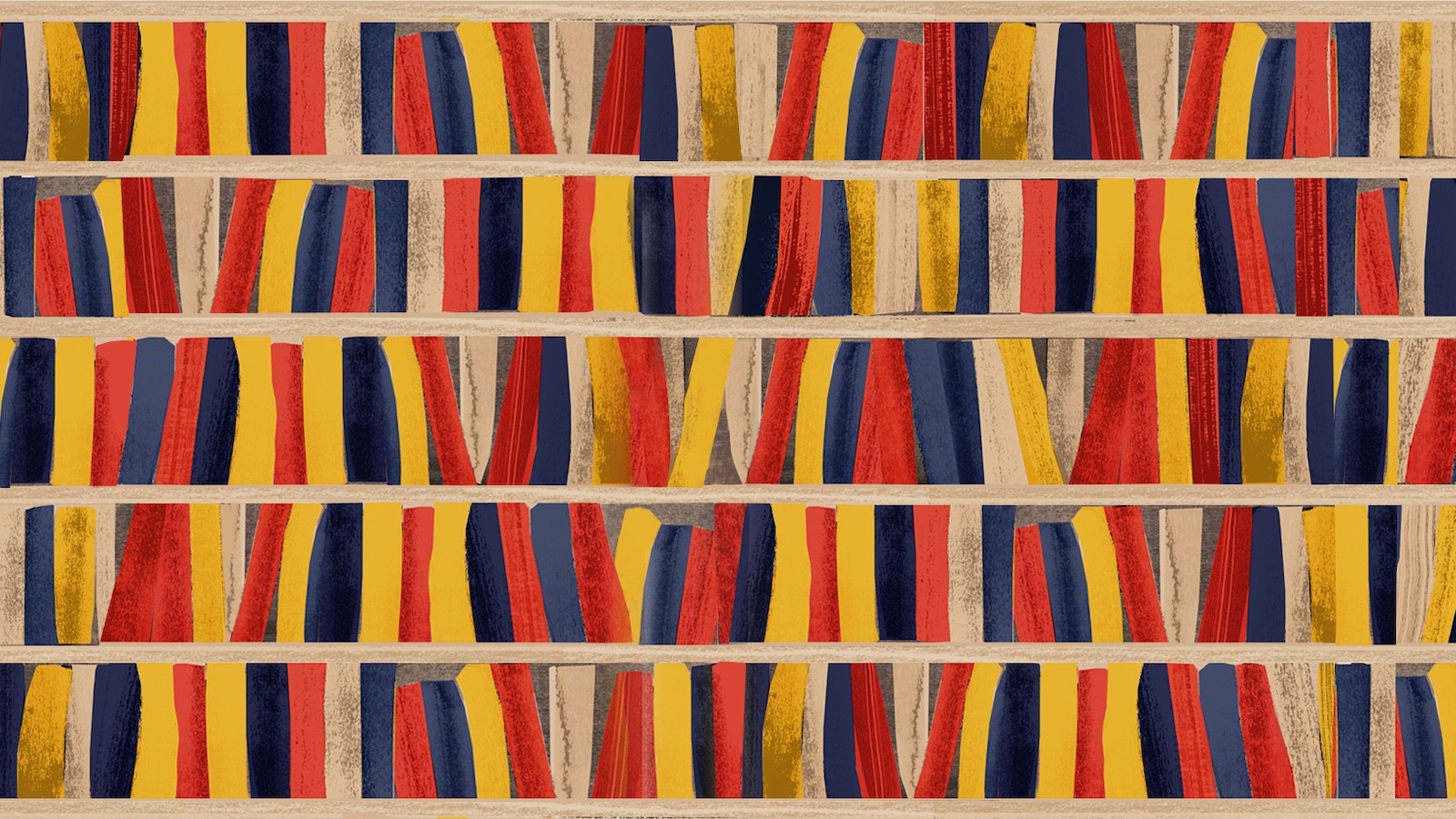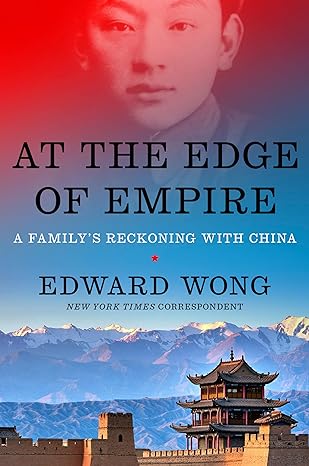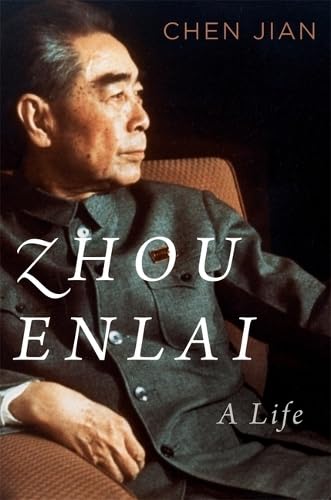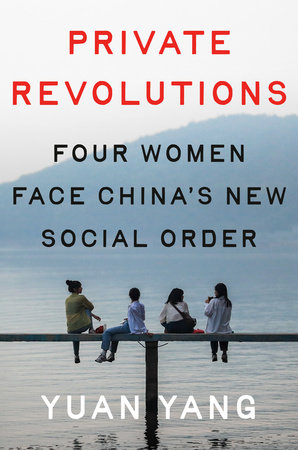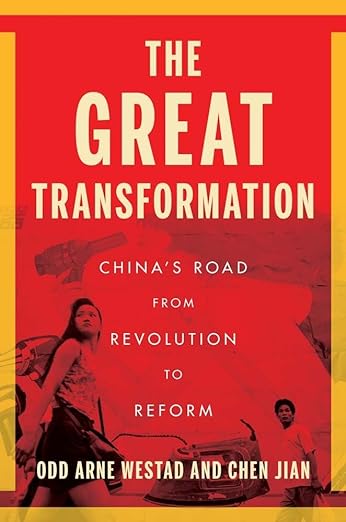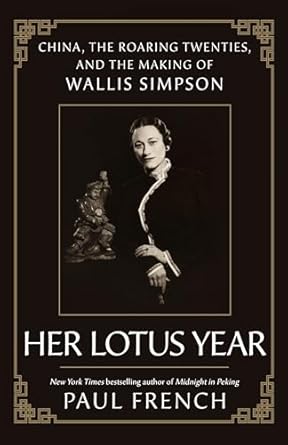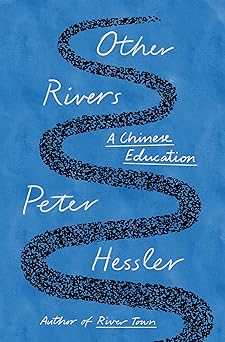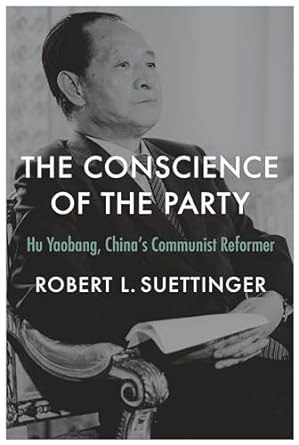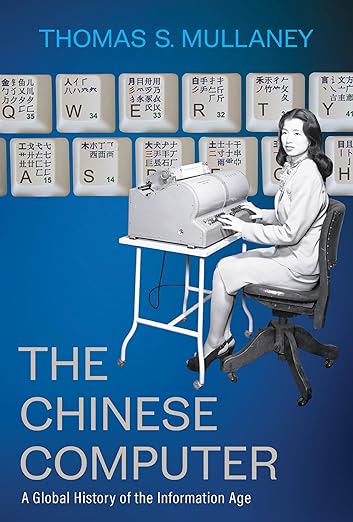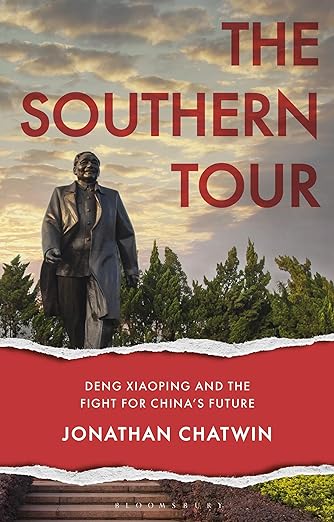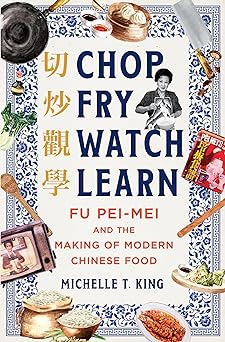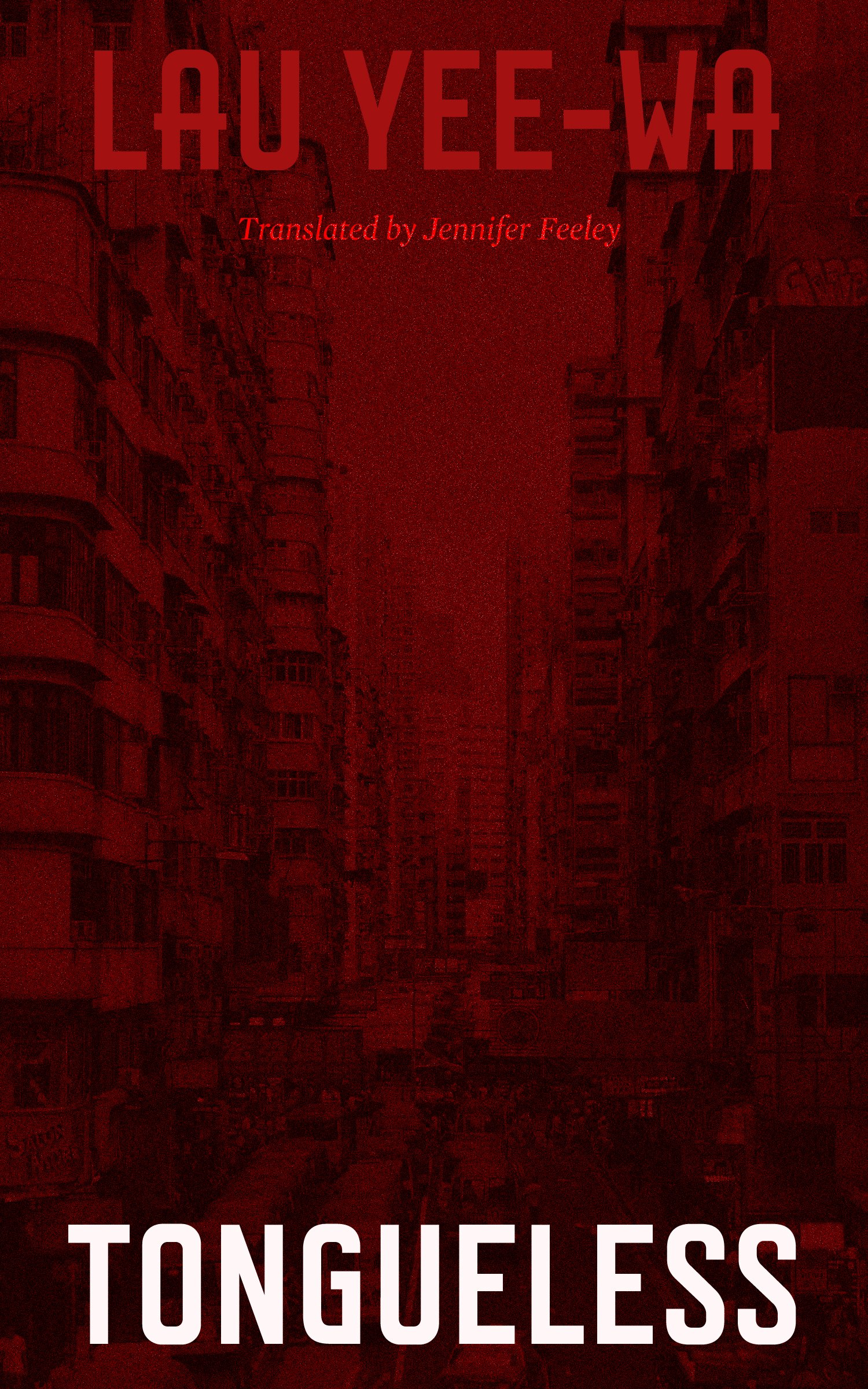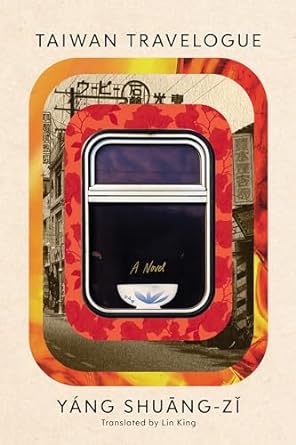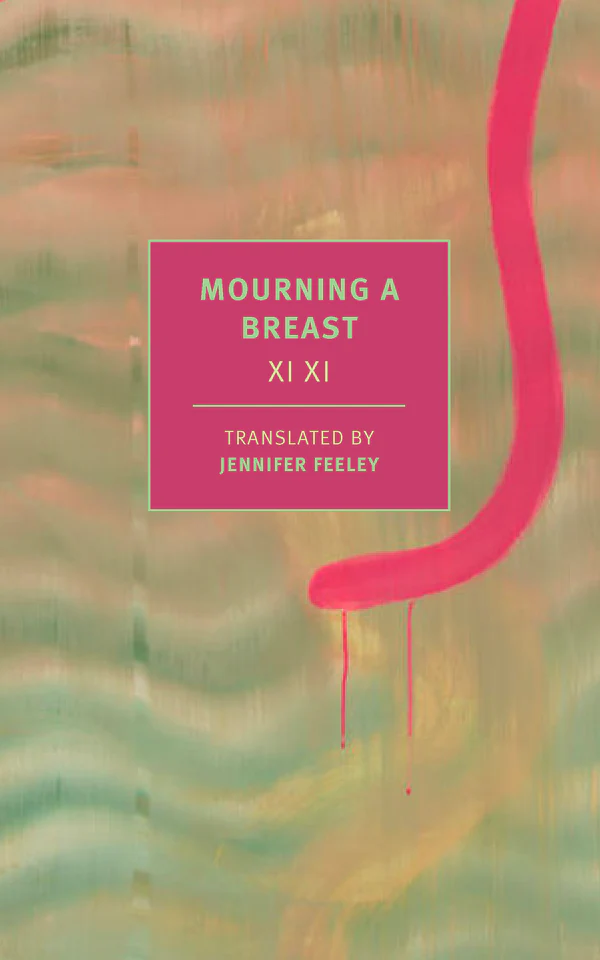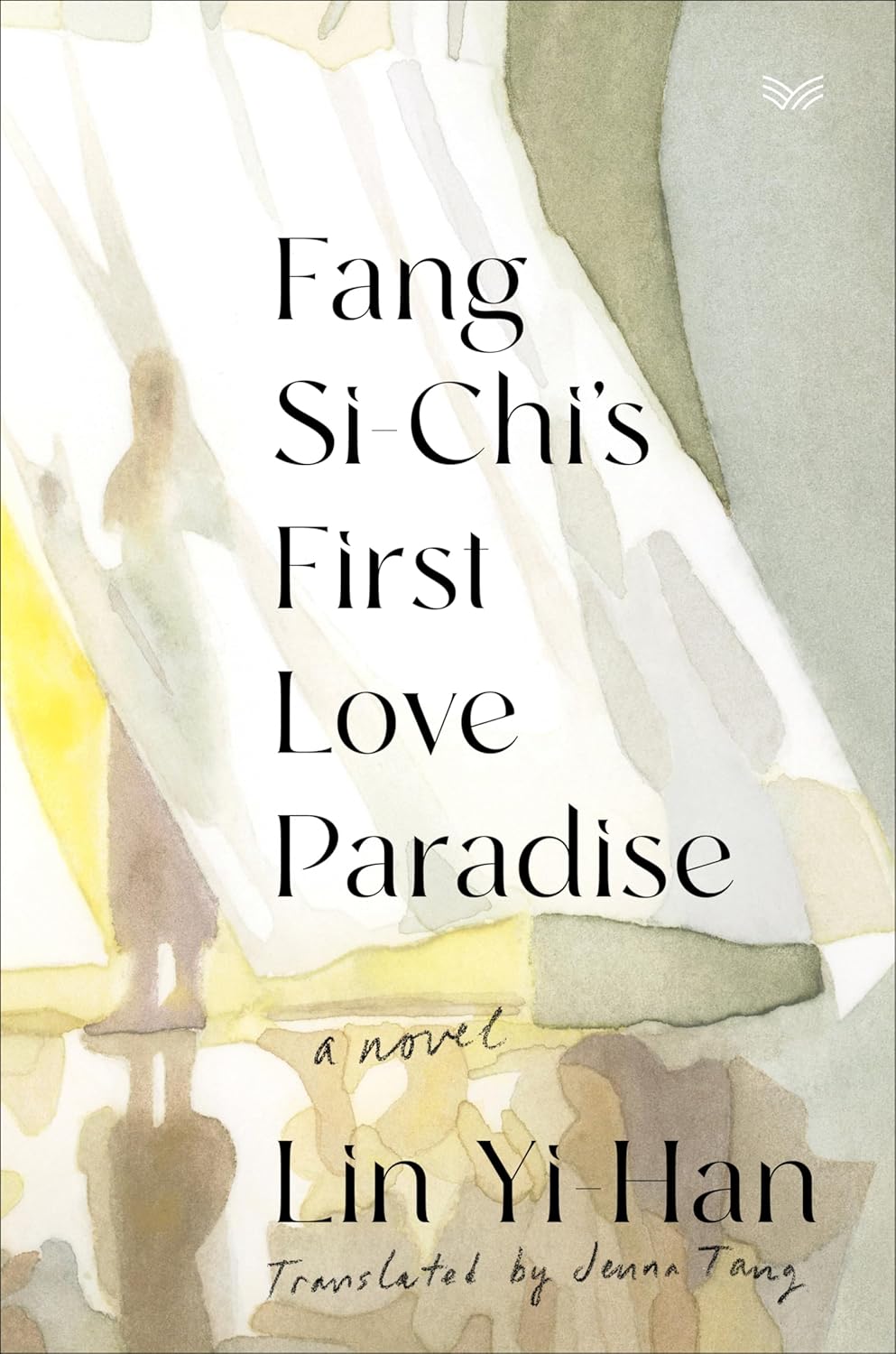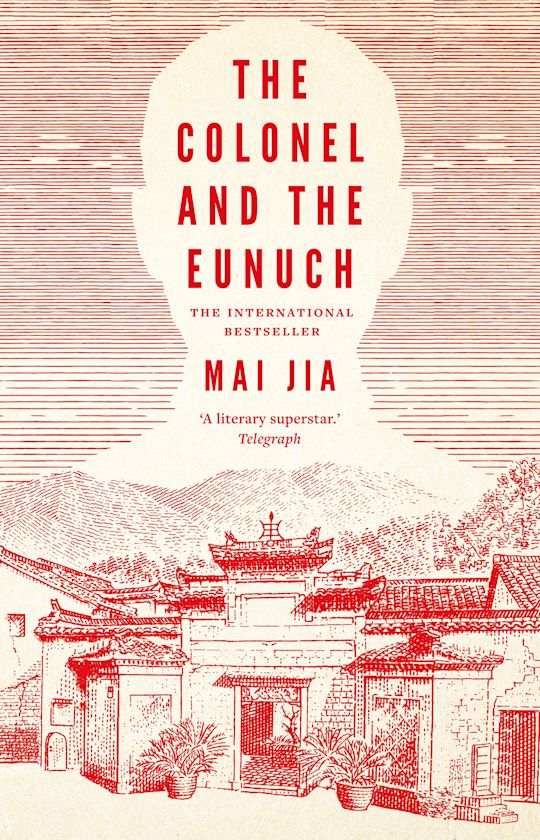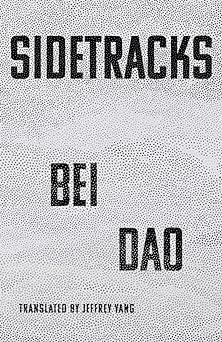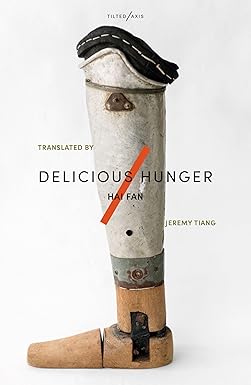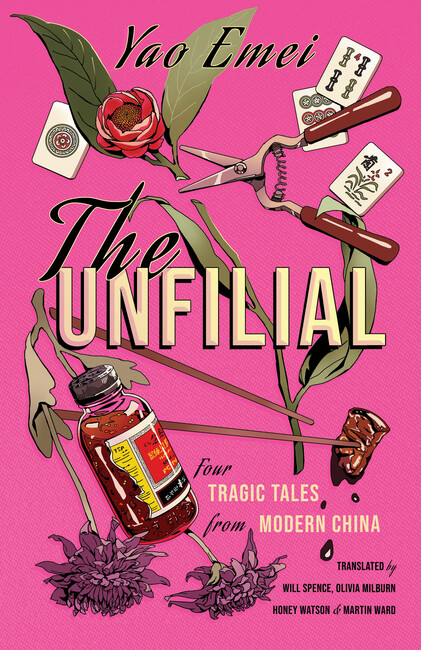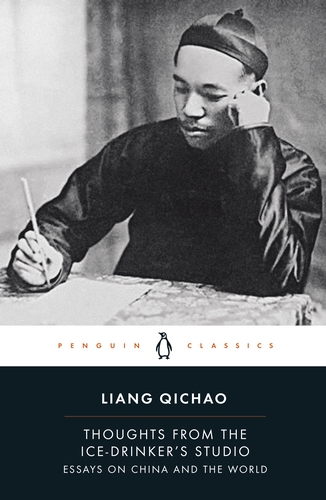“A book is like a garden you carry with you,” goes the flowery Chinese proverb of questionable provenance (书是随时携带的花园). The sentiment is only mildly contradicted by the more famous saying: “Better travel ten thousand li than read ten thousand books” (读万卷书不如行万里路). We prefer the simpler phrase: “A good book is a true friend” (好书如摯友). As reading rates decline around the world (with 48.5% of U.S. adults reading one or more book a year, according to a 2022 National Endowment for the Arts survey, down from 54.6% ten years ago), perhaps we have fewer friends than ever, left in the company of our own opinions about the world.
When we launched China Books Review a little over a year ago, we wondered if there were enough books on China coming out to justify our vertical. I had already been collecting them, while book writing myself from Dali, into a bimonthly column at The Wire China — who then teamed up with Asia Society to create this magazine. We counted upcoming and recent titles more programmatically, and used Amazon rankings to list the bestsellers, too. Now, at the end of 2024, we have counted some 600 books published over the last year whose subject or setting is China (or the greater Sinophone world and Chinese diaspora), from academic to trade titles, fiction to cookbooks. They range from weighty tomes on Xi Jinping’s ideology to more eclectic fare (such as a novel imagining Xuanzang and the Monkey King’s journey to find the Hebrew Scriptures, billed as “the world’s first Chinese-Jewish historical fantasy”). Indeed, we could barely feature a sliver of them.
To compile our end-of-year round-up of the most notable books published in 2024 (also see our 2023 picks), we sent a call-out for nominations from a list of over a hundred China watchers and writers. The ten titles that received the most nominations are presented below — in no particular order, excluding our own books, with blurbs written by some of those who recommended (or reviewed) them — across two categories: nonfiction books on China, in English; and translated Chinese literature.
As ever, the range in these top picks is impressive. Geographically, terrain is covered from reporting in Xinjiang to teaching in Sichuan. Historically, from a late Qing reformer to Deng Xiaoping’s 1992 Southern Tour. And in genre, from Party biographies to chronicles of Chinese cooking — not to mention translated fiction taking in queer tales of Taiwan under Japanese rule, Malaysian guerilla warfare and Hong Kong under linguistic siege. It’s a wide range of flora to pick from. We hope you enjoy this year’s literary Chinese garden.
– Alec Ash, Editor
NONFICTION CHINA BOOKS
At the Edge of Empire
A Family’s Reckoning with China
With great verve, Edward Wong has achieved the seemingly impossible. In Edge of Empire, he tells the bold story of his father Yook Kearn Wong’s love affair with the post-1949 Chinese Communist Party (CCP), moving from Hong Kong to fight for the People’s Liberation Army in mainland China, where he was posted in Manchuria and Xinjiang. This was followed by disillusionment and disappointment with the Party, such that he escaped the PLA and eventually fled to America. Edward Wong marries that inspiring family tale with his own deep experiences as a New York Times reporter in China, five decades later, reporting from the same regions that his father saw as a soldier. Edward is an exceptional story-teller, traveling to all parts of the country, encountering the ordinary and the mighty, the enforcers and the enforced.
— Jane Perlez, former New York Times Beijing bureau chief, host of the podcast Face-Off: US vs China (read the review)
Zhou Enlai
A Life
Zhou Enlai was one of the most important figures of the 20th century — not just in terms of Chinese history, but also for his role in shaping Asian ideas of the global in the postcolonial era. He was also central to Richard Nixon’s epoch-making 1972 visit to Beijing, a role commemorated in John Adams’s 1987 opera Nixon in China. Yet Zhou’s broader life, including his role as a top Chinese Communist Party activist and convinced revolutionary cadre, have still remained somewhat in the shadows. Chen Jian has made a comprehensive study of documents about Zhou Enlai. He uses them to make a measured and powerful judgement, in which the politician’s cruelties and flaws are never downplayed, but his importance to the making of modern China is also given full visibility.
— Rana Mitter, ST Lee Chair in US-Asia Relations at the Harvard Kennedy School (our review forthcoming)
Private Revolutions
Four Women Face China’s New Social Order
It’s fair to say Yuan Yang has had an eventful year. She became the Labour MP for Earley and Woodley in July 2024 — the first Chinese-born Briton ever to be elected to Parliament — just a couple of months after the publication of her wonderful first book, Private Revolutions. Before her turn toward politics, Yang had been a journalist covering China for The Financial Times. As the political repression and nationalistic rhetoric of the Xi Jinping era reached its cruising altitude, Yang began to trace the back stories of four Chinese women born in the late 1980s and early 1990s: Leiya, June, Siyue and Sam. Their stories vividly illuminate a human story that is too often told in crude statistics of GDP growth and per capita income — that of the incredible economic transformation of China over the last 35 years, and all its consequent striving and precarity.
— Jonathan Chatwin, author of The Southern Tour and Long Peace Street (read the excerpt)
The Great Transformation
China’s Road from Revolution to Reform
Do we need another history of China’s transition to economic liberalization? The answer is an emphatic yes when it is written by Odd Arne Westad and Chen Jian. The two historians focus on China’s “long 1970s,” from Mao’s Cultural Revolution to Deng’s scheme to resuscitate the economy without relinquishing political control. Westad and Chen have a keen eye for detail, from the support a young woman received from her collective to take the re-opened college-entrance exam in 1977, to the comic doggerel written by a general mocking his far-left political commissar. Their most valuable contribution is to present how viciously the Party’s leaders treated each other — Deng towards Hua, Mao towards everyone — and how they struggled more often over personal vanity rather than policy disagreements. Westad and Chen have documented this complex history while imbuing it with fresh narrative thrust.
— Dan Wang, fellow at Yale Law School’s Paul Tsai China Center, technology analyst at Gavekal Dragonomics
Her Lotus Year
China, the Roaring Twenties, and the Making of Wallis Simpson
If you’ve heard the name Wallis Simpson, you probably know two things about her: That she was an American divorcee whose relationship with King Edward VIII caused a constitutional crisis leading to his abdication in 1936 so they could marry; and that she had previously spent a year in Shanghai where she learned how to perform lewd sexual acts, which is presumably what so entranced the English king. But this accounting of Simpson’s sojourn in China is entirely false, according to Paul French’s latest historical work. Her Lotus Year, written in French’s signature prose, shows that the sexual rumors which swirled around Simpson for decades were manufactured by British tabloids. French traces Simpson’s travels from Hong Kong to Shanghai to Beijing, painting a textured portrait of life in China’s interwar foreign concessions.
— Bethany Allen, Head of China Investigations and Analysis at Australian Strategic Policy Institute, author of Beijing Rules (listen to the podcast)
Other Rivers
A Chinese Education
Peter Hessler first lived in China as a Peace Corps volunteer in the late 1990s, when he taught English at a teachers’ college in Fuling, a small town by the Yangtze River. He documented the experience in his acclaimed 2001 book, River Town. His latest memoir, Other Rivers, is a worthy sequel, in which he returns to China to teach at Sichuan University. With a fluid pen and an eye for detail, Hessler chronicles three generations of Chinese students: his former students from Fuling, who are now middle aged; his current students at Sichuan University; and his daughters’ schoolmates. This recent history unfurls through the quotidian: work, homework, marriage, child-rearing. Yet the underlying transformations are no less profound, as echoed in a refrain of the book: “Everything has changed; nothing has changed.”
— Yangyang Cheng, research scholar at Yale Law School’s Paul Tsai China Center (from her review)
The Conscience of the Party
Hu Yaobang, China’s Communist Reformer
Hu Yaobang, former General Secretary, personified the spirit of political reform that animated parts of the CCP in the 1980s, before Deng Xiaoping purged him following student protests in 1987. In this biography, Robert Suettinger weaves the story of Hu’s life with that of the Party he served yet sought to reform. Mao and then Deng cast long shadows over Hu’s life, illuminating the incredible influence of paramount leaders in Chinese politics (sound familiar?). One could fault the book for being sympathetic toward Hu, but some people are more deserving of our sympathy than others. We still await a squarer assessment of Hu’s nemesis than Ezra Vogel’s Deng Xiaoping and the Transformation of China. The Conscience of the Party draws heavily on the brave work of pioneering Chinese scholars, but is a welcome addition to the minor resurgence of major English-language biographies of Party luminaries.
— Neil Thomas, Fellow on Chinese Politics at Asia Society Policy Institute’s Center for China Analysis (our review forthcoming)
The Chinese Computer
A Global History of the Information Age
This follow up to The Chinese Typewriter describes how Chinese engineers and linguists solved the seemingly impossible challenge of producing thousands of Chinese characters using limited input methods developed in the West, such as QWERTY keyboards. Rather than seeing the Chinese language as incompatible with digital technology, Mullaney illustrates how breakthroughs in predictive text, autocompletion and cloud input resulted in methods of rendering Chinese that have profound implications for how language is produced in the digital age. The men and women involved transformed input methods, creating paradigms of human-computer interaction for billions of people who communicate using non-Latin scripts. The book is thick with technical details, but Mullaney’s judicious use of illustrations, charts and anecdotes makes this a thrill for anyone interested in the past — and future — of language and technology.
— Jeremiah Jenne, “The China Archive” columnist, China Books Review (our review forthcoming)
The Southern Tour
Deng Xiaoping and the Fight for China’s Future
Visiting Shenzhen, Zhuhai and Shanghai, retired paramount leader Deng Xiaoping used his 1992 “Southern Tour” of China to send a message of support for unbridled capitalism overseen by a strong Party-state. How his journey prompted a reboot of China’s capitalist fervor is the compelling main thread of Jonathan Chatwin’s The Southern Tour. (Some of the book’s material also appeared in his 2020-21 podcast of the same name.) Blending travelogue and historical narrative, Chatwin guides the reader through Deng’s trip as well as the major events and Party debates that led up to it. While Deng would win acclaim for the boldness of his tour — The Financial Times crowned him “Man of the Year” in 1992 — this book invites a more critical reflection on its legacy, and that of Deng himself.
— Maura Cunningham, historian and writer (from her review)
Chop Fry Watch Learn
Fu Pei-mei and the Making of Modern Chinese Food
In 2024, as in other recent years, my favorite China-related books included one about Chinese food. Michelle King’s engaging book Chop Fry Watch Learn focuses on celebrated television chef Fu Pei-mei, the closest counterpart Taiwan has ever had to Julia Child. King’s previous title, Between Birth and Death (Stanford University Press, 2014), was a well-received scholarly history of infanticide in 19th-century China. The new book not only deals with a different topic but covers more ground geographically (northeast China, the U.S., Taiwan) and moves between genres (oral history, memoir, biography). King has interesting things to say about everything from the history of gender in Taiwan to what cooking has meant to members of two generations of her own family.
— Jeffrey Wasserstrom, author of Vigil and the forthcoming The Milk Tea Alliance
TRANSLATED CHINESE LITERATURE
Tongueless
Ling and Wai are two women teachers struggling to sink or swim in their intensely competitive Hong Kong school. Wai succumbs, and kills herself in a particularly gruesome way. Ling is initially popular but unwisely gives an interview about Wai to a local journalist, and is outed. The pressures on her increase when the school decides to switch from teaching in Cantonese (the teachers’ and students’ native language) to Mandarin. Snubbed by the other teachers, persecuted by the head and tormented by the students, she takes refuge in frenzied shopping sprees, before finally getting plastic surgery in an attempt to improve her prospects. This is biting political satire: prioritizing Mandarin is a sign of Beijing’s increasing dominance in Hong Kong. A powerful short novel with strong Hong Kong flavor, in a translation by Jennifer Feeley which is marvelously inventive and funny.
— Nicky Harman, Chinese-English translator, trustee at Paper Republic (previously recommended here)
Taiwan Travelogue
A Novel
A queer love story, Yang Shuang-zi’s Taiwan Travelogue is a stunning historical novel set during Taiwan’s Japanese colonial period. The tale begins in 1938, recounting the troubled love of a Japanese travel writer for her Taiwanese guide and interpreter. As the pair travel by train and explore the island’s culinary offerings, many readers will delight in the introduction to Taiwan’s geography and intricate food culture. The metafictional narrative portrays the pleasures and frustrations of power, and deeply plumbs the layers of the protagonist’s longings, projections and misunderstandings. Lin King’s skillful translation echoes the complexity of the original Chinese, with narrative framing, notes and passages in three languages. Winner of Taiwan’s Golden Tripod Award, the novel is also the first work from Taiwan to win the U.S. National Book Award for translated literature.
— Sabina Knight, author of Chinese Literature: A Very Short Introduction (our review forthcoming)
Mourning a Breast
Xi Xi’s semi-fictional account of her first months living with breast cancer (originally published in Chinese in 1992) is also a book about so much more: from her love of swimming, and her discovery of a lump while in the pool changing room, to the history of Hong Kong shopping arcades, and whether or not they sell bras with a single cup. Xi invites us into her mind through those early days of uncertainty — into the films and literature that helped her process the disease, as well as her theory on tai chi swordplay as physical therapy. Lovingly translated by Jennifer Feeley, Mourning a Breast suggests that Xi Xi passed the decades between the book’s publication and her passing in 2022 as playfully and optimistically as ever.
— Jack Hargreaves, “Translated Chinese Literature” columnist (recommended here)
Fang Si-Chi’s First Love Paradise
A Novel
Taiwanese writer Lin Yi-Han’s bestselling novel, inspired by true events, tells the story of two precocious barely-teenagers, Fang Si-Chi and Liu Yi-Ting, in Kaohsiung. A teacher, Mr. Lee, takes a liking to the preternaturally sharp Si-Chi, and becomes bent on making her the next conquest to brag about to his perverted friends. Si-Chi’s parents readily accept his offer to privately tutor her. Like that, the power structures that once protected Si-Chi are upended, trapping her in a cage of abuse. Losing her best friend to jealousy and mistrust, Si-Chi’s only resort is literature, to which she turns for escape, and as a way of processing the violence wrought upon her. That such awful acts are described through beautiful literary allusions (as rendered in Jenna Tang’s empathetic translation) only makes it a more shocking read.
— Jack Hargreaves (recommended here)
The Colonel and the Eunuch
A decade since his bestselling novel Decoded came out in English, Mai Jia has a new novel in translation. This is a departure from his previous espionage thrillers, but (in Dylan Levi King’s romping translation) Mai’s signature intrigue and sense of humor remain. In a 1960s southern China village, a teenage boy tries to piece together the truth about his enigmatic middle-age neighbor, who is said to have fought on both the Communist and Nationalist sides of the Sino-Japanese and Chinese civil wars, while also living a life of debauchery despite his supposed lack of manhood. As the boy gathers stories, the country turns on its head — marauding Red Guards spread the Cultural Revolution. The narrator and his neighbor are both sent into exile, trying to keep going while the world around them is upended.
— Jack Hargreaves (recommended here)
Sidetracks
Bei Dao, a celebrated Chinese dissident poet who came to prominence in the wake of the Cultural Revolution, suffered a stroke in 2012 and lost most of his language faculties. Stripped of his familiar means of artistic expression, he started to paint. It is likely no coincidence that the poems in Sidetracks, his first collection in 15 years, resemble that medium of his recovery. They are ink-dot paintings, full of imagery that contributes to a greater picture. As with stereograms (magic-eye art), if we look at them long enough, a three-dimensional view of Bei Dao’s itinerant life in exile comes in and out of focus. From Beijing to West Berlin, Copenhagen to Hong Kong, this collection zigzags through his lifetime, while the 34 cantos themselves (in Jeffrey Yang’s propulsive translation) are a nebula of worldly experience.
— Jack Hargreaves (recommended here)
Delicious Hunger
Writer Hai Fan joined the Malayan Communist Party’s guerrilla warfare in the 1970s, fighting in the jungle, and this collection of short stories is inspired by the 13 years he spent there. Inevitably, they contain violence — gunfire exchanged with the Malaysian federal security forces, limbs lost in explosions, a wild boar mangled by traps. But they also show how jungle warfare continued into the comrades’ “downtime,” when food was scarce and had to be hunted in a landscape dotted by mines. We are reminded that everyday challenges do not vanish because of war. There is a sensory richness to the material descriptions (in Jeremy Tiang’s measured translation) of hunger, fear and damp. This is a reality full of quiet moments under siege, and the stories center the quietest act of political resistance: living.
— Jack Hargreaves (recommended here)
The Unfilial
Four Tragic Tales from Modern China
Yao Emei, a Shanghai-based author of books for children and adults, has already won various awards in China including the People’s Literature award and the Shanghai Literature Excellent Novella Award. Her young adult novel Tilted Sky was also published in English this year, about a Chinese boy from a broken family going to boarding school. But The Unfilial, her adult fiction collection, is darker and more gruesome. Four short stories, each with a different translator, are connected by the dysfunctional families in them, from a murderous grandson and an adulterous affair to a maternity hospital janitor who discovers a horrific secret about unwanted babies. Yao’s satirical scalpel is brandished throughout, especially when it comes to the depiction of her long-suffering and abused female characters.
— The Editors
Cage
Qiu Miaojin, who died in 1995 by suicide at the age of 26, is one of Taiwan’s best-known queer female authors, famous for her coming-of-age novel Notes of a Crocodile (translated into English 2017). Now we have a new story by Qiu to devour, rendered in artful translation by Shengchi Hsu. The set-up is simple and gripping: a boy and a girl meet on a rooftop, where they have independently arrived to kill themselves. Instead, they make a pact that entwines their lives together. The prose is as haunting as the plot, and Qiu’s own voice shines through in such a way that it is impossible not to read her own untimely death in the struggles of her protagonists. “This is in essence a cage without a door, the size of a single room,” she writes. “Clearly, you’ve resolved to run away; to keep running and running.”
— The Editors
Thoughts From the Ice-Drinker’s Studio
Essays on China and the World
Liang Qichao is one of the most influential thinkers modern China has produced. His life bridged the end of the Qing dynasty into the Republican era, a time of huge social and political turmoil for the country. Thoughts from the Ice-Drinker’s Studio is the first collection of his works to appear in English. In essays and writings across three decades, expertly translated and introduced by Peter Zarrow, Liang lays out his vision of what a new Chinese identity might be, merging its ancient past with its role in the modern world. The Chinese people lack “state consciousness,” Liang complains, and a clear idea of who they are. Much of his writing deals with how to remedy this. Reading his words today gives a fresh perspective on some of the most contentious issues which China, and the world relating to it, still struggles with today.
— Kerry Brown, Professor of Chinese and Director, Lau China Institute, King’s College, London (our review forthcoming)
That’s a wrap for 2024. We hope you’ve enjoyed our fare at China Books Review so far, with 106 articles over 26 issues, and more to come that we couldn’t fit in yet. Posting will return in the new year, with an exciting special announcement. For now, here’s wishing our readers happy holidays, and strong shelves. ∎

